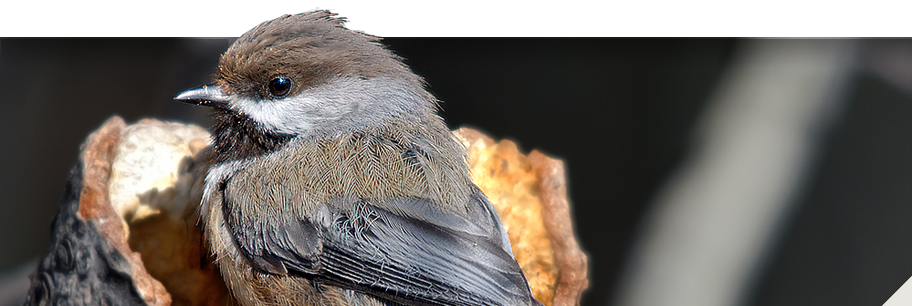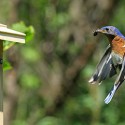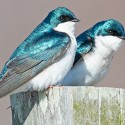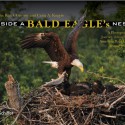 Photo ©
Keith Williams
Photo ©
Keith Williams

When and How to Help Nestlings
If you participate in NestWatch long enough, eventually you may have to make a judgment call about whether or not a brood of nestlings needs help. It’s better to know the appropriate course of action in advance so you will be prepared if intervention is necessary. That’s why we’ve taken a common dilemma and turned it into a new Frequently Asked Question. As one NestWatcher recently asked, “The female parent of the Eastern Bluebird nest I’m monitoring is dead. Should I take the nestlings and put them in another bluebird nest, or try to raise them myself?”
The practice of placing nestlings from one nest into the nest of another female of the same species is referred to as wild-fostering, and is a tactic that should only be used by wildlife rehabilitators to raise abandoned nestlings. Unless you are a licensed and permitted wildlife rehabilitator, you should not attempt to initiate wild-fostering yourself for the following reasons.
If one or both parents are dead, there may be infection, disease, or parasites in the family, and it’s possible the nestlings and nest are contaminated. Moving nestlings from one nest to another can spread the disease and leave all the birds worse off than before.
The addition of hungry mouths to feed can also put undue stress on the foster parents. Eastern Bluebird nestlings, for example, require insects every 20 minutes, and even with both parents helping out, the effort can be exhausting. Too many nestlings leaves adults susceptible to illness and predation. In addition, for wild-fostering to be successful, the orphaned nestlings must be placed with a foster family of the same age. More than a single day’s difference in either direction, and the foster parents may reject the new nestlings. Trained rehabilitators are better able to match the nestlings in need with a foster family that will accept them and that can handle the added stress, or to raise the nestlings in a captive facility until they can be released.
The most important thing to remember is that the nestlings may not need their mother. In most altricial bird species, both the male and female care for their young (except hummingbirds). If one parent dies the other parent will often continue to care for the nestlings. If your nestlings are at least a week old, they have enough feathers to keep themselves warm at night, and no longer require their mother’s brood patch to survive. Bluebird males help in the raising of nestlings, and members of previous broods may give some assistance too (particularly in Western Bluebirds), so it’s quite probable the nestlings are being fed even without the female.
To learn more about what you should do if you encounter orphaned nestlings, continue reading this article here.

An Overdue “Thank You”
Hundreds of thousands of volunteer data collectors are due for some thanks from scientists, according to a new study that reveals the role of citizen science in bird and climate change research. Data collected by volunteers underpins up to 77 percent of the studies in this field. Read more about it.
“Our paper is a chance to say thank you to the many people who are citizen scientists,” said lead author Caren Cooper, a research associate at the Cornell Lab of Ornithology. “They are part of the process of creating new knowledge—and they should know that their observations really make a difference in professional science. People who have been doing a hobby for years have tons of expertise, and they can make a very real contribution.”

Win This Signed Book!
Would you like to win one of two signed copies of the award-winning book Inside a Bald Eagle’s Nest, by Teena Gorrow and Craig Koppie? Give us five minutes of your time, and you could win this wonderful new book which was recently awarded the 2014 Green Earth Book Award by The Nature Generation!
Simply take our short survey and enter the drawing at the end for your chance to win. Your feedback helps us shape the future of NestWatch, and we want to hear from everyone, whether you’re a newbie or a long-term participant. Take the short survey here.